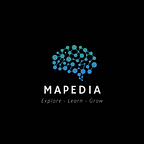Why Online “Learning” is Failing
Students are learning digitally. Especially those in the younger generation, who have been forced to cope with the large scale shift to online education. However, beyond those seeking to complete their primary education, students of all ages, skill sets, and educational backgrounds have also taken to the web to learn.
With the large influx in online learning traffic, major companies have been founded and grown to the unicorn status they sit at today. That being said, they are failing to teach. On average, enrolled students finish roughly 30% of their courses. To put it better, these education providers are not giving students the resources they need to learn. While smaller groups and individual educators have also attempted to grow in the space, they are stuck fighting these very firmly backed organisations.
Here are the most prominent issues we found with the current state of online learning.
Too many resources
When you search “How to code” on Google — you will be hit with roughly 5,620,000,000 results in less than a second. The results include a wild variety of resources, from bootcamps to online courses to youtube videos to individual articles. As someone aspiring to learn “How to code” — picking the “right” starting point to help one properly begin their journey is truly a guessing game.
Monetised recommendations
If you do use a search engine like Google to begin finding these resources, you will be innately and uncontrollably victim to the solutions that pay the most for your attention. While this doesn’t necessarily mean these advertised landing pages contain “bad” learning materials, it is quite likely that most of the resources will not tend to an individual’s specific learning needs/desires. Overall, any group/individual that might create and publish phenomenal learning resources, are likely to be drowned out by those willing to pay or play the most to push their own content.
Limitations of paid solutions
Similar to standard education models, paid learning solutions typically fall into the “one-size” or “one-path” fits all dilemma. Using these solutions, learners begin to develop an understanding that “If I can’t learn these materials in this order, I can’t learn this topic” — which is not how learning works. Everyone is different, everyone learns in their own way. Committing to one of these online paid learning solutions can easily leave learners with a loss in time, money, and an overall feeling of failure and incompetence.
Lack of guidance from A-Z
So how can I learn “How to code”? The answer is — there are 1 million ways! However, the “optimal” path from A-Z can be very different for everyone based on their previous knowledge and current state. At this time, it’s nearly impossible to guarantee you will put yourself on the most ideal learning path in order to properly conquer a topic or area to the “finish”, while starting at a point unique to each individual.
A lonely journey
A lot of learners prefer learning with other people, and indeed the success of cohort based courses proves it. However these are almost always expensive, and without them it’s hard to find other learners on the same path. This leaves those without access to a groups of peers to go through the entirety of their learning journey without the power and support of a collective group.
The Great Unknown
When not guided by an expert or classically trained professor, figuring what to learn next can be overly challenging. Bridging between the learning gaps one can run into, along with not knowing “how deep” a topic goes, are difficult, yet common obstacles. These “unknown unknowns” can be frustrating as they block progression and waste learners motivation to actually learn.
Summary — What’s Next?
The online learning revolution is only beginning. That being said, as more and more individuals begin investing their time and resources in the space, the expectation for highly innovative and personalised experiences will continue to grow. There is a great opportunity to provide motivated learners the tools they need to thrive. The question becomes — how will the industry adapt?
Stay tuned and follow our newsletter as we continue to discuss the online education sector and how we plan to change the way people learn. 🧠
Follow the journey at Mapedia.org to see how leveraging data, a graph database, and the wisdom of the crowd can re-shape how the world uses educational resources to explore, learn, grow.
